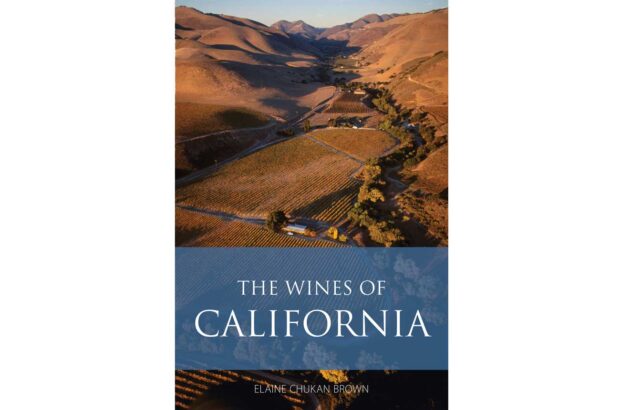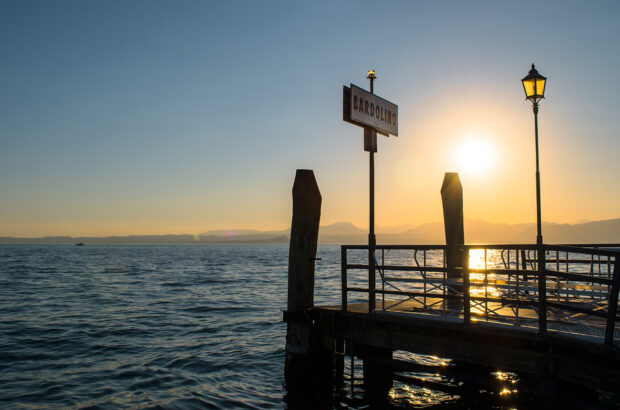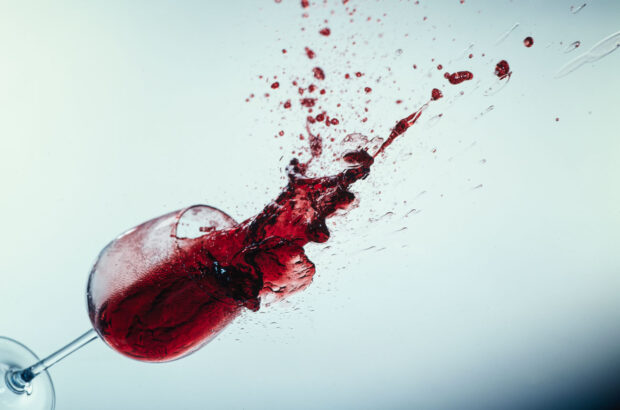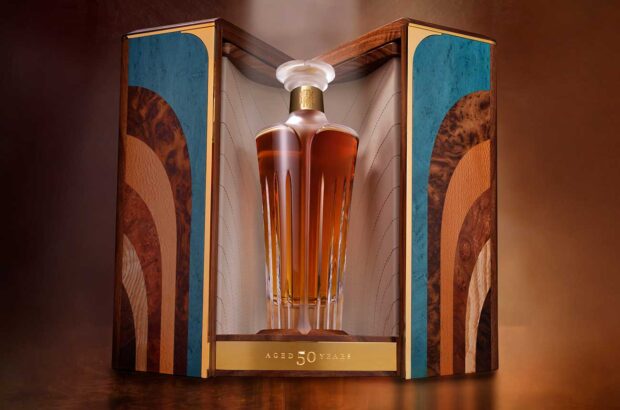Chapter 7 in my memoirs, Wine – a Way of Life, carries the title ‘Bonjour Paris’ and Chapter 12, set 19 years later, is titled ‘Au Revoir Paris’. My commercial life in Paris had been very up in the 1970s and progressively down in the ’80s, so, returning in straitened circumstances to London in 1990 to look for employment in a city from which I had essentially been absent for two decades, Chapter 13 is inevitably titled ‘The Road Back’– the shortest in the book, followed by ‘Life with Decanter’, which is the longest.
I knew Decanter well as a magazine. The first edition in June 1975 for the modest price of 40p had a cover line: ‘How to buy good Bordeaux and keep your bank manager happy’ and an inside story, ‘Confessions of a Lady Wine Bar Proprietress’. Both could be columns today. The founders – Colin Parnell, a bookish and talented musician, and Tony Lord, a hard-drinking Australian journalist – had created Decanter following the demise of Katie Bourke’s much-loved Wine Magazine, and in late 1985 had employed Sarah Kemp to head the commercial side.
I was invited to the occasional tasting, and in early 1993 found myself seated next to Sarah, with Michael Broadbent being on her other side, at a charity dinner for the wine trade Benevolent, and told her of the demise of my six-month stint managing the Harrods wine department. ‘You’re well out of that,’ she said; ‘come and work for Decanter’ – of which she had become the publisher on Parnell’s retirement.
My first column appeared that September and continued without a break until last month’s issue, a total of 320 – not bad, but still unapproachably far from my hero and mentor Michael Broadbent’s 433.
Competitive element
Working alongside Sarah and her team was a joy. Every idea was considered and many used with success. Over the years, Decanter has been like a family to me, and early on I stopped using my ‘Steven Spurrier, Wine Consultant’ business cards in favour of the more recognisable Decanter ones. Sarah was a great captain of the Good Ship Decanter, which sails on under Robin McMillan, and many of the old hands are still on board, with unsurprising continuity.
Shortly after joining Decanter, I was asked to take over the Japan Wine Challenge, a wine competition backed by Tokyo-based entrepreneur Ronald Brown. A branch of my Paris Académie du Vin had opened in Tokyo in 1987, and I could combine this with my annual masterclass at the school. I was also a regular judge on the International Wine Challenge, based in London and run by Decanter’s competitors at Wine magazine, and from around the turn of the century had been pushing Sarah to create a Decanter wine competition. She always pushed back, saying ‘Decanter does events, not competitions’. Then, in about Easter 2003, she said: ‘Steven, the time is right: you set the rules and we’ll present it at the Bordeaux Vinexpo in June.’
The rules were those that I had imposed on the JWC: tasting sitting down at tables of four with a senior judge per table, flights of not more than 12 wines, taste like with like in price brackets with full information except the name of the wine, and elect a Regional Chair for each country or major wine region. These rules were simple and, while expanded and refined to take account of the 17,000 entries to what quickly became the world’s largest and most respected wine competition, have remained in place for the Decanter World Wine Awards.
See also: Steven Spurrier’s top wine memories
Good reading
I am often asked what, in my life in wine, I am most proud of and I always reply that it was the creation of L’Académie du Vin, France’s first private wine school, in 1973. The Judgement of Paris tasting held in May 1976 of course made L’Académie famous and cemented its reputation, but in terms of pride, the DWWA would run it pretty close.
So why, after nearly three decades of interactive pleasure, am I leaving Decanter? I think I can lay a fraction of the blame on Hugh Johnson, Decanter’s longest-serving contributor. In summer 2018, I had managed to retrieve the rights to the name and brand L’Académie du Vin and was considering how it might be revived.
Lunching with Hugh that autumn, I was bemoaning the fact that wine books today were either hefty reference books or buying guides and asked what had happened to all the ‘literature’ on wine, on people and places, that we had been brought up with. ‘All gone,’ he replied; ‘someone should recreate it.’
Within six months, the Académie du Vin Library had been formed, the force behind it being the brilliant Simon McMurtrie who, as managing director of Mitchell Beazley in his mid-20s, had published both Hugh Johnson and Michael Broadbent.
Our first book was the commemorative edition of Michael’s seminal Wine Tasting, launched to great acclaim on 30 April 2019 – 50 years since its original publication and two days before Michael’s 92nd birthday – followed by Fiona Morrison MW’s 10 Great Wine Families, Ben Howkins’ Sherry: Maligned, Misunderstood, Magnificent, and my particular baby, In Vino Veritas, a recreation of Cyril Ray’s The Compleat Imbiber, an anthology with the best writing from the past and the present on all aspects of wine. This year we have another five books in the pipeline, and for this reason what is left of my brain cells will be devoted to nurturing the development of the Académie du Vin Library.
But it is ‘Au revoir’ and not ‘Goodbye’, as I cannot truly leave Decanter, and I look forward to all the Fine Wine Encounter events in the future. The only difference now is that I will be buying my own tickets and not getting a free lunch…
Decanter consultant editor Steven Spurrier has been a columnist for the magazine since September 1993, and was the Decanter Hall of Fame Award recipient in 2017. This is his final column.







